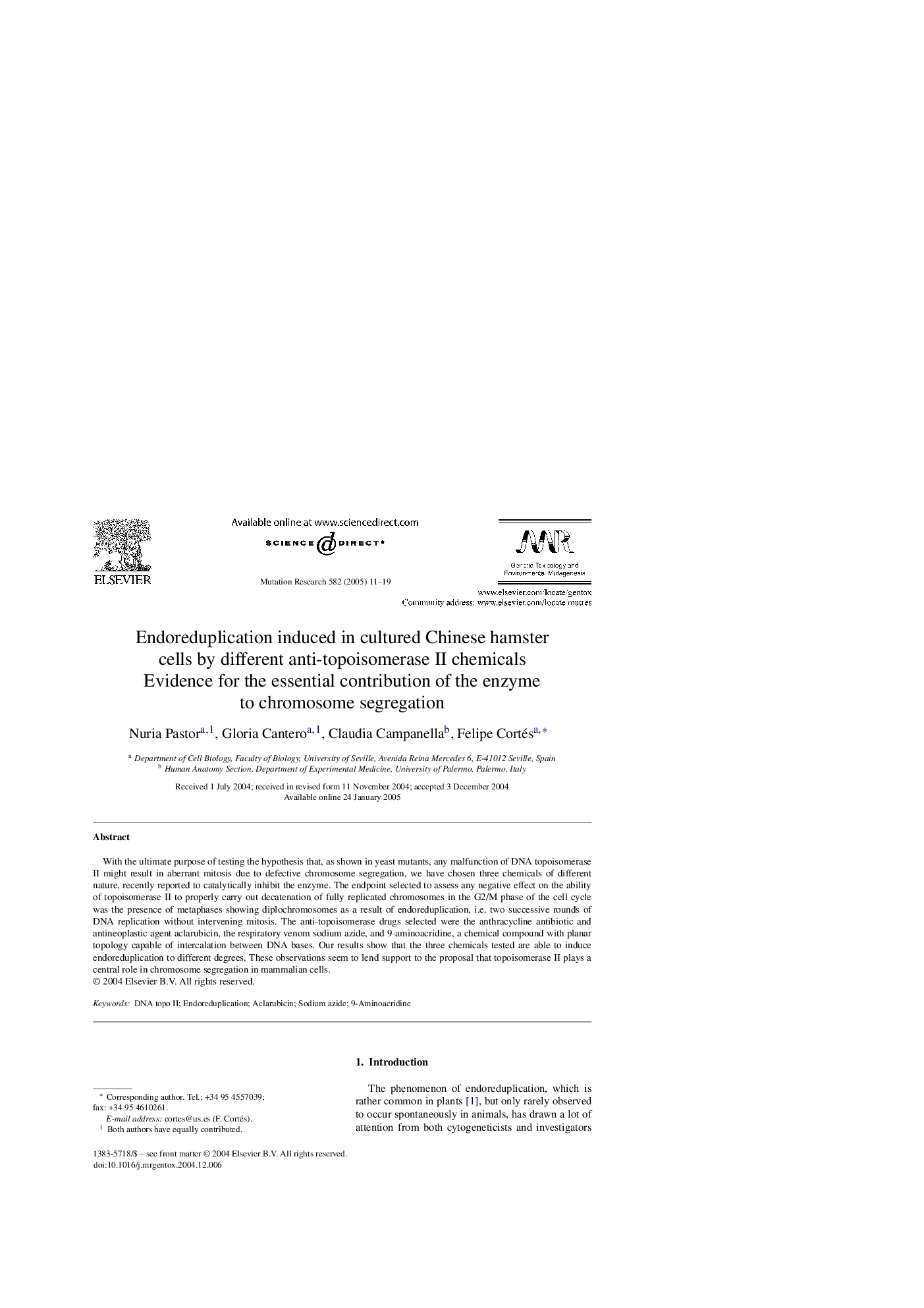| Article ID | Journal | Published Year | Pages | File Type |
|---|---|---|---|---|
| 9910126 | Mutation Research/Genetic Toxicology and Environmental Mutagenesis | 2005 | 9 Pages |
Abstract
With the ultimate purpose of testing the hypothesis that, as shown in yeast mutants, any malfunction of DNA topoisomerase II might result in aberrant mitosis due to defective chromosome segregation, we have chosen three chemicals of different nature, recently reported to catalytically inhibit the enzyme. The endpoint selected to assess any negative effect on the ability of topoisomerase II to properly carry out decatenation of fully replicated chromosomes in the G2/M phase of the cell cycle was the presence of metaphases showing diplochromosomes as a result of endoreduplication, i.e. two successive rounds of DNA replication without intervening mitosis. The anti-topoisomerase drugs selected were the anthracycline antibiotic and antineoplastic agent aclarubicin, the respiratory venom sodium azide, and 9-aminoacridine, a chemical compound with planar topology capable of intercalation between DNA bases. Our results show that the three chemicals tested are able to induce endoreduplication to different degrees. These observations seem to lend support to the proposal that topoisomerase II plays a central role in chromosome segregation in mammalian cells.
Related Topics
Life Sciences
Biochemistry, Genetics and Molecular Biology
Cancer Research
Authors
Nuria Pastor, Gloria Cantero, Claudia Campanella, Felipe Cortés,
